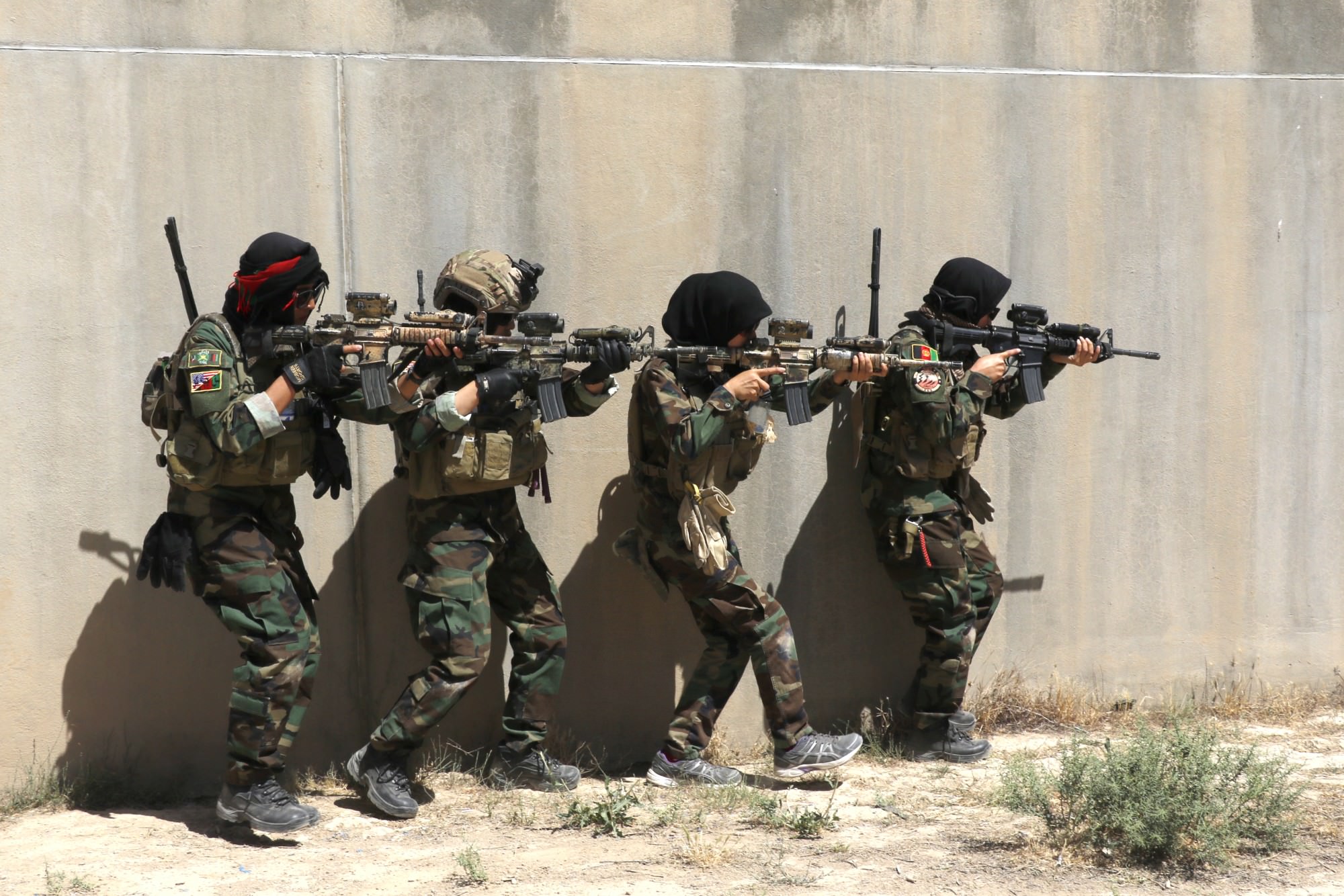U.S. News
Afghan Women Who Once Fought Alongside U.S. Fear Washington Will Abandon Them
By Mara Lafontaine · August 3, 2023
In brief…
- Mahnaz Akbari, a former commander of the Afghan Female Tactical Platoon (FTP), now resides in Maryland following America's 2021 withdrawal form Afghanistan.
- She was one of the 70,000 evacuees processed under "humanitarian parole," a status that provides temporary benefits that will soon expire.
- Akbari wants to join the U.S. military and reunite her family, but her temporary status has made that difficult to do.
- Akbari hopes for passage of the Afghan Adjustment Act, a bipartisan bill in Congress intended to provide permanent status for vetted Afghan evacuees.

Mahnaz Akbari was once the commander of the Afghan Female Tactical Platoon (FTP), working with U.S. Special Operations in Afghanistan to conduct night raids on the Taliban.
Today, nearly two years after America’s controversial withdrawal from Afghanistan, Akbari lives in Maryland, one of over 70,000 evacuees who came to the U.S. under Operation Allies Welcome and processed under “humanitarian parole” - a status that provides people like Akbari short-term benefits. However, once those benefits expire, Adbari and other Afghans like her face legal limbo.
She recounted the experience of her 2021 evacuation from Afghanistan when she spend ten days trying to get inside the airport amid the chaos. After finally escaping from Afghanistan, she spent two months in a military camp before settling in Maryland. Only her two nieces could accompany her, while the rest of her family was left behind.
“So, now it’s really dangerous for our family because they allow us to work for U.S. military. Most of the girls, like two or three of FTPs, the Taliban captured their brother and tortured them,” Akbari told NPR.
The former FTP commander believes her best hope is the proposed Afghan Adjustment Act (S.2327 and HR 4627) announced in the House and the Senate. The measure is a bipartisan effort to:
Provide a path to permanent status for Afghan evacuees.
Establish rigorous vetting requirements and criminal inadmissibility grounds for applicants to the pathway to permanence.
Expand and improve upon ongoing efforts to protect Afghans left behind.
The act would also expand the Special Immigrant Visa (SIV) by broadening eligibility to include groups that worked alongside American forces, such as the Female Tactical Teams of Afghanistan.
The bill was first introduced last year by Senator Amy Klobuchar (D-Minnesota), but failed to gain enough Senate support. The bill was reintroduced last month by Senator Chris Coons (D-Delaware).
Akbari said, “I think it’s important for me, the Afghan Adjustment Act, because I want to join to U.S. military, but I can’t because I don’t have my permanent status. I think the important thing is my reunification of my family. I want to bring them here. But because I don’t have permanent status, I can’t do that. It’s the same for the other” members of the Afghan Female Tactical Platoon .
Fearing growing political resistance to migration in the U.S., Akbari said, “I think there is a difference between Afghans and other people because we were all allies, like Americans’ allies… A lot of people, like Afghan people… they risked their lives to work with U.S. military and help them.”